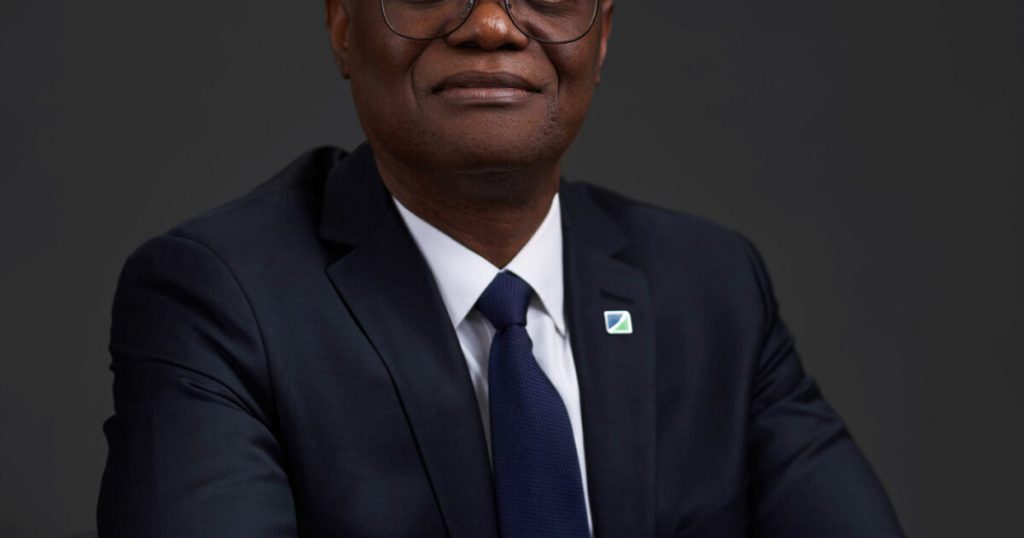Kevin Ugwuoke, the Executive Director and Chief Risk Officer of Fidelity Bank Plc, has taken the helm as President and Chairman of the Governing Council of the Chartered Risk Management Institute of Nigeria (CRMI). His inauguration, which took place in Lagos, marks a pivotal moment for the institute, with Ugwuoke outlining an ambitious reform agenda centered on policy advocacy, ethical practice, and digital innovation to bolster risk governance across various sectors in Nigeria. Simultaneously holding the position of Acting President of the Federation of African Risk Management Associations, Ugwuoke views his new role as a call to action, emphasizing his commitment to establishing CRMI as a leading voice and key partner in Nigeria’s national development.
Established by Act No. 39 of 2022, CRMI serves as the professional body for risk management professionals in Nigeria, championing best practices and advocating for effective risk management strategies. Ugwuoke’s vision extends beyond mere certification; he aims to cultivate a national awareness of risk governance, engaging with policymakers, raising public awareness, and equipping organizations with practical tools to integrate risk intelligence at every level. His five-pronged strategy encompasses strengthening professional certification and education, fostering deeper regulatory engagement, driving digital transformation, integrating Environmental, Social, and Governance (ESG) and climate risk considerations into corporate strategy, and encouraging youth participation in the risk management profession.
A crucial element of Ugwuoke’s plan involves collaborating closely with influential policy institutions, such as the Nigerian Economic Summit Group, the National Assembly, and sub-national governments. This collaboration aims to embed structured risk frameworks into economic development plans, emphasizing the integration of risk thinking into planning, governance, and investment processes. Furthermore, CRMI, under Ugwuoke’s leadership, will advocate for more inclusive regulatory frameworks that support small and medium-sized enterprises, enhance macroeconomic stability, and build institutional resilience, recognizing the vital role of these frameworks in a robust and adaptable economy.
Ugwuoke’s focus on enhancing professional standards within the risk management field includes plans to revise the institute’s curriculum, introduce new certifications that address emerging risk trends, and modernize its learning management systems. He also highlighted the development of a national risk observatory, designed to provide real-time risk intelligence to both the public and private sectors. This observatory will serve as a crucial resource for informed decision-making and proactive risk mitigation. Furthermore, Ugwuoke stressed the importance of digital innovation in CRMI’s future operations, outlining plans to fully automate backend systems, expand virtual training offerings, and leverage technology to maximize the institute’s impact across Nigeria and beyond.
The handover ceremony also provided an opportunity to reflect on past achievements. Professor Ezekiel Oseni, the immediate past president of CRMI, highlighted key milestones during his tenure, including securing the institute’s charter status, expanding partnerships, and gaining increased international recognition. He charged the new administration to build upon these accomplishments and further elevate the institute’s standing. Chukwuma Nweke, Deputy Managing Director of UBA, delivering a goodwill message on behalf of UBA’s Group Managing Director/Chief Executive Officer, Oliver Alawuba, commended Oseni’s leadership in deepening regulatory partnerships, mainstreaming enterprise risk management frameworks, and emphasizing the importance of risk thinking at the board level.
Nweke expressed confidence in Ugwuoke’s ability to lead CRMI, describing him as a highly respected figure in the risk management ecosystem, possessing the academic depth and practical foresight needed to navigate the current volatile global environment. Alawuba echoed this sentiment, adding that Nigeria’s economic challenges, from inflation and exchange rate volatility to debt sustainability concerns, are not merely financial indicators but risk signals requiring proactive, data-driven governance frameworks. He emphasized the need to shift the perception of risk management from a compliance obligation to a strategic tool for resilience and growth, arguing that organizations that integrate risk intelligence into their strategies will be better equipped to withstand shocks, create value, and foster investor confidence. The handover ceremony also included the conferment of Fellow designations on 11 professionals, the induction of 21 new Chartered Risk Managers, and the constitution of a new Governing Council for the 2025-2027 term, ensuring continuity and strategic renewal within the institute.


